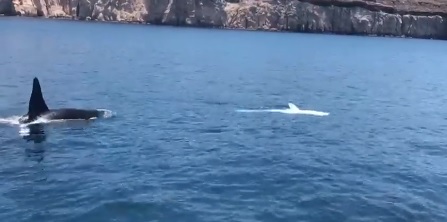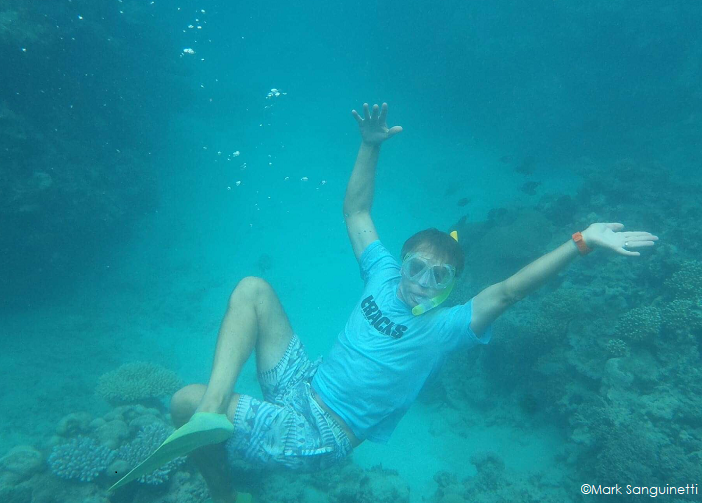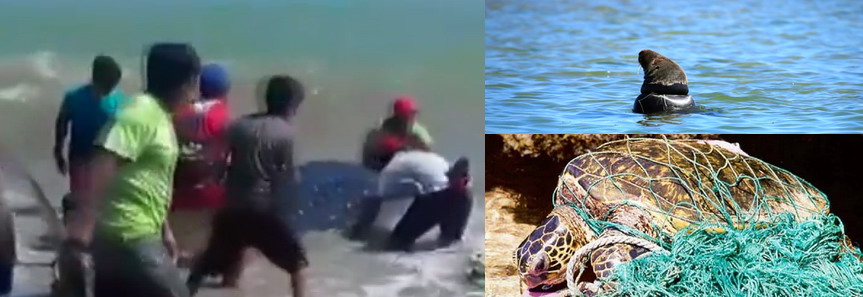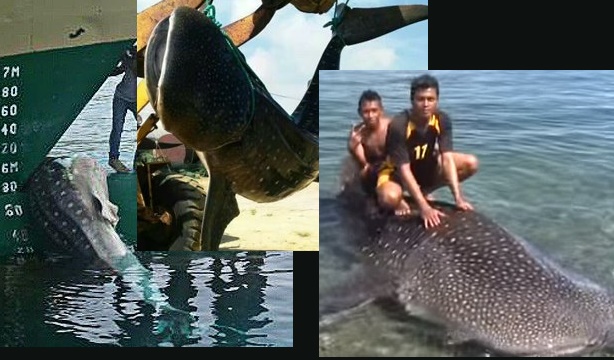Video of an orca killing a whale shark in Mexico has been shared on social media.
The footage is reported to have been taken off Holy Spirit Island in the Gulf of California around May 14.
Viewers see a killer whale slowly approaching a large white mass floating in the water.
As the boat follows the orca, the white mass takes shape and can be identified as a whale shark.
The shark, which is struggling to swim upside down, has blood leaking from its lower body.
It appears the orca has punctured the precaudal tail of the whale shark.
Orcas, which have been called “wolves of the sea,” often hunt in packs and have been known to kill great white sharks.
Killer whales tend to stun their victim and force them to the surface. Once their prey is on the surface, the whales can work in tandem with each other, grabbing a pectoral fin to pull open a target. The whales can then extract the shark’s liver to consume.
Whale sharks have massive livers, which can weigh up to one ton. The oil-filled liver is thought to help the shark adjust buoyancy.
Shark livers are rich in organic chemicals, an excellent food source for killer whales.
Whale sharks are gentle giants and have only their hard skin for protection. Great whites, which have also been targeted by killer whales, have rows of large teeth, but are no real match against a pod of killer whales.
Last year three great white sharks washed ashore in South Africa, none of which had a liver.
In 2016, photographer Slater Moore captured two female orcas and two calves dragging a shark around Monterey Bay, California.
The whales were part of a 25-strong group and had killed a sevengill shark. The large female was filmed carrying the carcass.
There have been other known cases of whale shark predation seen in the Gulf of California. Theories behind the kills range from lack of other food source, opportunistic killing, and the presence of sharks as a natural food source.



